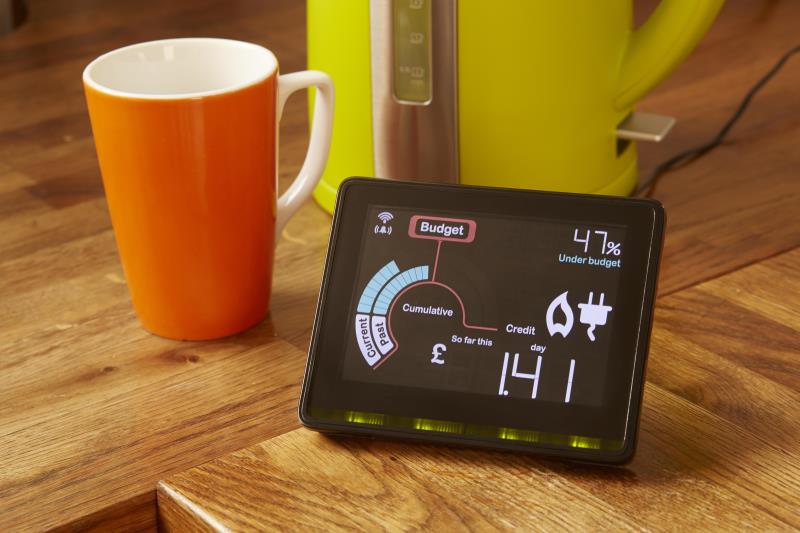Household Bills
Millions of smart meters are ‘dumb’

An estimated three million smart meters weren’t operating in smart mode as of March 2023, while the delays to the rollout have been criticised, and the challenges facing the industry have been highlighted.
Smart meters are meant to save people money on their gas and electricity bills by providing suppliers with accurate meter readings, bringing an end to estimates.
In 2012, energy suppliers were legally obliged to complete the rollout of smart meters by the end of 2019 and were required to take “all reasonable steps” to install them in homes and businesses.
But the Government did not at that point set out what percentage of premises would need to have a smart meter for the rollout to be considered ‘complete’.
The deadline for the completion was pushed back three times, the first by the end of 2020, then 2024 and then 2025.
Only one out of 13 large suppliers achieved both its 2022 electricity and gas smart meter installation targets. In total, these 13 suppliers installed 3.7 million meters against their combined target of nearly five million.
In February this year, the Government launched a consultation on plans to have smart meters installed in 80% of homes by the end of 2025.
However, according to the National Audit Office (NAO), at the end of March 2023, only 57% of all electricity and gas meters were smart. That’s 32.4 million out of 57.1 million, with data showing people aged 18 to 24, those in private rented accommodation, and those who pay their energy bills quarterly being less likely to have smart meters installed.
Of the 32.4 million installed smart meters, 9% or three million were not operating in smart mode at the end of March 2023 “and are effectively indistinguishable from a traditional meter”, according to the NAO. This means they do not send energy use information to suppliers and may not display this to customers.
Smart meter costs and benefits
The UK’s independent public spending watchdog also revealed that indicative annual savings for a typical dual fuel household stand at £56.
Meanwhile, the Government’s 2019 estimate of the cost to energy suppliers of the rollout of smart meters over the period 2013 to 2034 stood at £13.5bn. But its estimate of the benefits over the same period stood at £19.5bn, leaving a net benefit to suppliers and billpayers of £6bn.
However, the NAO’s report suggests it is likely that the cost per smart meter will be more because average installation costs are higher than expected.
It said there are several challenges in achieving current targets, including a shortage of installation engineers and disagreements with suppliers “who argue that they have exhausted the ‘low hanging fruit’ of customers who want devices and therefore call for new policies to support the rollout”.
On the flip side, the actual benefits per meter are also likely to be higher than expected due to the recent high energy prices and “emerging technologies” for increasing savings.
“These costs are initially borne by suppliers and fed through to households via energy bills. Both costs and benefits have been delayed by the slower-than-planned rollout,” the report read.
It added that the smart metering implementation programme is one of the largest in Government by whole-life cost, “equivalent in scale to the recently completed Crossrail railway construction project”.
‘Progress but programme needs to get back on track’
The NAO last reported on smart meters in 2018 and said since then, the Department for Energy Security and Net Zero (DESNZ) which leads on and is responsible for the smart meter programme, “have made important progress in ensuring smart meters can function in almost all homes”.
It said most smart meters no longer lose their smart functionality if a customer switches to a different supplier, with DESNZ suggesting it is technically possible for them to function in 96.5% of homes.
Gareth Davies, the head of the NAO, said: “The Government has made recent progress in rolling out smart meters across Great Britain.
“The rollout is now at a crucial point – and the department should ensure it has robust information on both the total costs and benefits of smart meters to make decisions from an informed position to maximise value for money.
“DESNZ must now work with suppliers to get the programme on track, for the benefit of millions of consumers and small businesses and the Government’s wider environmental goals.”
Dan Brooke, CEO of Smart Energy GB, the voice of the smart meter rollout, said with over 32 million smart meters having been installed, it’s a “significant achievement”.
“We welcome the NAO’s report, which recognises the important progress of the smart meter rollout in recent years and the substantial benefits that smart meters bring to households and businesses in Britain. The report identifies areas for improvement, but also highlights that past challenges have been largely overcome and that smart meters are helping people to reduce their energy use and save more money than ever before.”
Brooke added: “Data from smart meters is also playing an increasingly important role in creating a cheaper, greener and more reliable energy system that is less reliant on expensive, imported oil and gas. Nearly 900,000 new meters were installed in the first three months of 2023 alone, and it’s important that we keep the momentum up so that as many people as possible can feel the many benefits of smart meters.”
A Department for Energy Security and Net Zero spokesperson, said: “As the NAO recognises, we’ve made good progress in the rollout of smart meters with over 32 million now in homes and small businesses across Great Britain, putting them in control of their energy use and saving money on bills.
“But we want more people to benefit as soon as possible. That’s why we’ve set energy suppliers ambitious but realistic installation targets and are working with them to speed up the rollout.”